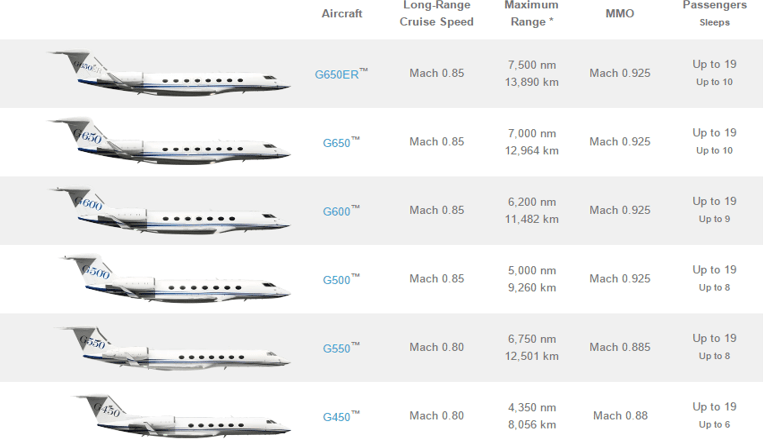The Complete Guide to Selling Your Private Jet Without Sacrificing Privacy
In the world of high-value transactions, privacy becomes not just a preference, but a paramount necessity. This is particularly true when selling a private jet, which can represent a significant chunk of a high-net-worth individual’s asset portfolio. This article offers a comprehensive guide to help you navigate through the complexities of selling your private jet, while placing a strong emphasis on preserving your privacy. From grasping the current market dynamics for private jets to choosing between brokers and direct sales, and concluding the transaction securely, every facet of the process is under our radar. By the end of this exploration, you would have gained expert insights into conducting this nuanced, high-stakes operation meticulously yet discreetly. Let the journey commence!
Note: This article will particularly benefit individuals who inherently value their privacy and are looking to protect it during such high-value transactions.
Understanding the Current Market Trends for Private Jets
Private jet markets are incredibly dynamic and can vary from season to season and even year-to-year. Gaining a sound understanding of the current market trends is crucial to strategically positioning your aircraft for sale and achieving the best possible return on investment.
Market Demand Analysis
The demand for private jets is heavily influenced by a myriad of factors ranging from global economic performance to local regulatory changes. Over recent years, we’ve seen a sustained increase in demand for private jets. This upsurge has been attributed to the rise of high net worth individuals (HNWIs) and their growing preference for more personalized and efficient travel options.
Another key market trend has been the increased demand for used jets over new ones. This is often due to shorter waiting times and more attractive pricing, particularly for well-maintenance and late-model aircraft.
It’s essential to analyze these demand trends and determine how they apply to your specific aircraft model and its unique features. The insights gained from this analysis will position you to effectively cater to interested buyers.
Investment Potential and Resale Value Trends
Your private jet isn’t just a luxurious mode of transportation; it’s a significant financial investment. Understanding how its value may appreciate or depreciate over time can help you make informed decisions when selling.
Historically, certain models have held their value better than others due to their popularity, reliability, and cost-efficiency. Resale value trends are critical to examine, as they can significantly influence the pricing and timing of your sale.
Keeping an eye on the investment landscapes in high-growth regions can also provide indications of potential areas where demand for your jet might be high. Emerging markets often provide new pools of prospective buyers, thereby supporting increased demand and potentially higher sale prices.
It’s important to engage experts who understand the intricacies of private jet investments and can offer insightful assessments on potential returns. This will ensure you’re well-positioned to navigate the sale of your aircraft from an informed perspective, maximizing your return while minimizing risks.
Jet Specifications & Performance
In selling your private jet, fully understanding its specifications and performance capabilities is a necessity. Potential buyers will certainly ask detailed questions regarding the type of aircraft, its features, and its service history.
Types of Jet: Light, Midsize, Heavy
Knowing the category of your private jet is crucial for setting the pricing and effectively marketing the aircraft to potential buyers. Light jets are comfortable for short to medium range flights, often sufficient for 5-8 passengers. Models in this category include Cessna Citation series, Learjet 70, or Embraer Phenom 300.
If your jet falls into the midsize category, this generally means that it can accommodate slightly larger groups (usually 7-9 passengers), travel longer distances and offer higher comfort levels – think Gulfstream G150, Learjet 75, or Hawker 900XP.
Finally, categorized as heavy jets, these luxury airliners provide the ultimate long-range travel for larger groups. Jets like Gulfstream G650 and Bombardier Global 6000 are examples, offering robust capacities, long-range capabilities, and unparalleled luxury.
Key Performance Metrics: Range, Speed, and Fuel Efficiency
Clearly outlining your jet’s performance can make a significant different for potential buyers. A key consideration would be the range of the aircraft, or how far it can travel without refuelling. This is a value proposition for many buyers, especially those looking for long-haul capabilities.
The speed of your private jet also impacts selling prospects. A faster jet means shorter travel times, a feature that attracts those who value efficiency.
Also, don’t shy away from discussing fuel efficiency. In a world increasingly conscious of environmental impact, a fuel-efficient jet may be an attractive feature to environmentally-aware buyers.
Maintenance and Service History
A well-maintained jet is far more valuable than one with a murky maintenance history. Regular, professionally conducted services and a clean service history are compelling selling points. Be ready to supply all relevant logs and certification, which provide proof of regular maintenance and evidence of any upgrades or major works undertaken.
In the end, the intricate blend of jet type, performance characteristics, and proper maintenance history are key factors in determining the success of selling your private jet.
Luxury & Comfort Features
When selling your private jet, you need to take into account not just the technical details and price, but also the luxury and comfort that your aircraft offers. It’s these elements that differentiate a private jet from commercial aircraft and make them so appealing to high-net-worth individuals. In this section, we will delve into the significance of luxury features and amenities of your private jet, and how these can boost the value of your aircraft in the marketplace.
Interior Design and Customization Options
The interior design and customization options of your private jet are an important selling point. It’s where you have a chance to make your aircraft stand out from the rest. Do not underestimate this aspect; buyers appreciate uniqueness and a jet that reflects their tastes and personality could fetch a higher price.
Interior design is all about aesthetics and comfort. Potential buyers will surely inspect the style and condition of the aircraft seats, tables, and cabinetry. High-quality materials, tailor-made finishes, and a well-maintained interior can significantly boost your jet’s appeal and price.
Customization options are another enticing feature. Most buyers have specific expectations and wish lists when purchasing a private jet. If your aircraft can be easily customized, you have the ability to cater to a larger pool of potential buyers. For instance, some buyers may appreciate an office setup for business convenience, while others might prefer a spacious, lounge-like setting for comfort.
Onboard Amenities: Wi-Fi and Entertainment Systems
Today’s high-net-worth individuals expect nothing less than top-notch onboard amenities. A well-equipped private jet is perceived as a comfortable and efficient mobile office or home, hence, it’s crucial to consider the following outstanding features:
Wi-Fi – In an age where we’re always connected, providing fast and reliable Wi-Fi on your private jet is non-negotiable. It’s particularly critical for business travelers who need to remain in contact with their offices or clients even while flying.
Entertainment systems – Long flights can become tedious, making onboard entertainment a must-have feature. Potential buyers will appreciate features like flat-screen TVs, surround sound systems, satellite TV, streaming services, gaming consoles, or even an onboard cinema.
Remember, the amenities you offer can significantly impact a buyer’s decision so ensure that your jet is well-equipped with the latest features in both functionality and luxury. By highlighting these quality attributes, you are more likely to make a quick and profitable sale of your private jet.
Operational Costs & ROI
Taking a strategic approach to selling your private jet entails understanding crucial financial aspects such as the return on investment (ROI) and operational costs. These factors might influence potential buyers’ decisions and hence, addressing them before proceeding with the sale significantly enhances the sales strategy.
Purchase Price vs Resale Value
The purchase price of a jet is essentially what you paid for it, including any subsequent improvement or modification costs. Conversely, the resale value is the amount you expect to receive from selling the jet. It is essential to bear in mind that the purchase price and resale value might differ considerably, with several factors such as market trends, jet age, type, condition, and maintenance history affecting the resale value.
With the evolving demand in the private jet market, a jet’s resale value can greatly fluctuate. Some jet models might retain their value more effectively than others due to market demand or reputation for quality and performance. Therefore, understanding the difference between the purchase price and potential resale value is a critical step in setting an accurate and competitive selling price.
Operating Costs Breakdown: Fuel, Crew, Insurance
Operating a private jet entails numerous costs that you as the owner incurred and potential buyers will need to consider. These typically include fuel, crew salaries, insurance, maintenance and repair, hangar fees, and more.
- Fuel Costs:
Fuel is one of the most significant expenses in operating a private jet. The fuel consumption rate varies depending on the jet type, size, and flight distance. Knowing the average fuel consumption helps prospective purchasers budget for this recurring cost. - Crew Salaries:
Private jets require a professional crew, including pilots and, often, flight attendants. The salaries of these professionals are important ongoing costs to consider. - Insurance:
Jet insurance provides financial protection against several potential risks, from accidental damage to liability coverage. The cost of insuring a private jet can vary based on factors such as the jet’s value, its envisaged use, and the owner’s claims history.
By breaking down the operating costs, you give prospective buyers crucial information to guide their purchase decision. By being transparent about these costs, you shape realistic expectations, thus easing and accelerating the sale process while maintaining privacy and security throughout the transaction.
Ownership Benefits & Incentives
Owning a private jet goes beyond the symbolism of wealth and luxury – it brings concrete benefits and incentives that, when fully understood, can considerably boost your overall return on investment.
Understanding Tax Benefits
When it comes to tax advantages, a private jet can indeed be a remarkable investment. In several jurisdictions, private jet owners are entitled to substantial tax reliefs. This could include the deductibility of expenses related to the acquisition, operation, and maintenance of the aircraft from taxable income.
To further sweeten the pot, the depreciation of the aircraft can also be deducted, offering substantial tax savings over time. It is, however, highly recommended to consult a tax expert to fully understand the potential tax benefits tied to private jet ownership. The tax laws vary across jurisdictions, and staying compliant while optimizing tax savings requires keen expertise. Your tax expert can guide you on the interpretation of tax laws and ensure tax-efficiency while taking into account your unique situation.
Remember, tax benefits can significantly decrease the net cost of owning a private jet. Therefore, having a deep understanding of them can play a significant role in shaping your selling price.
Time Savings and Exclusive Airport Access
Beyond the financial aspect, owning a private jet offers incomparable time savings and exclusive airport access. This feature is especially significant for high-net-worth individuals for whom time is a rare and invaluable commodity. With a private jet, you command your schedules, resulting in substantial time savings by bypassing common obstacles tied to commercial aviation such as long security lines, boarding delays, layovers, and early check-in requirements.
Furthermore, private jets enjoy access to numerous airports that commercial airlines can’t reach. This could mean landing closer to your final destination and reducing transport time significantly. Also, with the ability to lower operational discussions to the minute, you’ll find it easier to maintain privacy, an invaluable advantage for individuals who value discretion.
Such flexibility, luxury, and time efficiency offered by private jet ownership are unrivaled. They not only increase the marketability of your jet when selling but can also warrant a premium price for your aircraft. That’s why, more than ever, time savings and exclusive airport access should be major selling points for your private jet. After all, time is the true ultimate luxury.
Preparing Your Jet for Sale
As you gear up towards selling your private jet, two of the most important aspects that can greatly influence the success of the sale are comprehensive inspections and maintenance, and compiling all necessary documentation. Let’s take a look at these in detail.
Inspection and Maintenance Requirements
Before putting your private jet on the market, it is vital to have it thoroughly inspected by certified aviation technicians. This includes a review of internal systems, such as the engines and avionics, as well as the externals like the fuselage and wings. The goal is to ascertain the current condition of the aircraft and rectify any issues that may reduce its value or appeal to prospective buyers.
Routine maintenance is a standard requirement for all aircraft. However, prior to a sale, it’s advisable to carry out a more thorough maintenance check encompassing all major aspects of the jet. This not only offers buyers reassurance of the jet’s health but can also be a significant selling point.
Remember, the key rule when it comes to inspection and maintenance before selling your jet: a well-maintained, hitch-free aircraft is always more attractive to buyers.
Gathering Essential Documentation: Logbooks, Certifications
Next, you’ll need to compile the necessary documentation related to your aircraft. Prospective buyers will want to see thorough and complete records that prove your jet’s airworthiness and history.
Logbooks detailing the service and maintenance history of the jet are staple documents that must be included. They provide buyers with a comprehensive overview of the jet’s health and upkeep over the years. In addition to the logbooks, certifications such as the Airworthiness Certificate, Aircraft Registration Certificate, and any other relevant permissions or permits also need to be collated.
While gathering these essential documents may seem like a daunting task, keep in mind that a well-organized, clear, and comprehensive documentation package enhances the credibility of your sale.
In conclusion, while the process of preparing your private jet for sale can be intensive, remember that meticulous preparations will likely result in a smoother sale process and a better return on your investment. Your aircraft’s next owner not only buys the jet itself but also the assurance that they are purchasing a well-kept, well-documented, and fully functional jet.
Setting the Right Price for Your Aircraft
Setting the right price for your aircraft is a vital step while considering a sale. It balances enticing potential buyers, achieving a return on investment, and refraining from undervaluing the asset.
Factors Influencing Aircraft Pricing
Determining appropriate pricing isn’t random. Critical factors influence aircraft pricing and it’s essential to acknowledge them for a successful sale.
- Type of Aircraft: The make and model of a private jet play a significant role in its pricing. For instance, larger aircraft like heavy jets will typically command a higher price compared to light or mid-size jets due to their size, range, and luxury features.
- Age and Condition: The age and condition of the jet affect pricing. While older jets may come at a lower price, a well-maintained old jet might command a higher price than a poorly kept newer model.
- Operational Hours: The number of flight hours and cycles also impact a jet’s value. Jets with lower operational hours typically attract higher prices.
- Maintenance History: A well-documented maintenance history is critical. Regular, thorough service checks and updates can heighten a jet’s worth.
- Market Demand: Market demand and supply significantly influence pricing. When demand is high and supply is low, the prices tend to increase and vice versa.
By understanding these elements and how they affect your jet’s worth, you can set a realistic and competitive price point that appeals to a range of prospective buyers.
Conducting a Competitive Market Analysis
A competitive market analysis helps you understand the pricing landscape, provides insight into current market trends, and places you in a better position to set an attractive price for your jet.
It involves three steps:
- Identify Comparable Aircraft: Begin by identifying jets similar to yours in terms of model, year, condition, and specifications, a tactic known as comparing “like-for-like” in the industry.
- Evaluate Pricing: Investigate how these similar aircraft are priced. Consider their location, time on market and selling price, which can be obtained from aircraft listing websites.
- Identify Market Trends: Monitor market trends for any fluctuations in demand and price for your type of aircraft.
This analysis will position you to price your jet competitively, ensuring you secure a buyer without significantly sacrificing your returns.
Remember, smart pricing is strategic pricing. Having full knowledge of influential factors and the competitive landscape will ensure your private jet is priced to sell, shielding your privacy during the transaction by eliminating unnecessary back-and-forths and prolonged exposure on the market.
Choosing Between Brokers vs Direct Sales
When it comes to selling high-value assets such as a private jet, one of the most significant decisions you’ll have to make is whether to use a broker’s services or navigate the selling process directly. Both options come with their distinctive sets of advantages and challenges.
Pros and Cons of Using Brokers
Having a broker can significantly lessen the burden on the seller. A private jet broker is an industry expert who has been trained and experienced in all things aviation, from market trends to legal procedures, leading to a smoother sales journey. They have cultivated a network of potential buyers and can more effectively price and market your aircraft due to their understanding of the specific niche in aviation. Furthermore, a broker can handle the tedious parts of the sales process like paperwork and negotiations saving you a considerable amount of time.
However, using broker services does come with a cost, typically billed as a percentage of the final sales price, which can significantly eat into your profits. There’s also the risk of encountering unprofessional brokers who might not prioritize your privacy and interests.
How Brokers Ensure Privacy and Security
Despite the concerns, many high-net-worth individuals opt for broker services due to their ability to ensure privacy and security during the process. A responsible broker understands the essence of privacy in high-value transactions. They can use pseudonyms and anonymize details during advertising to keep your identity hidden from the public.
Moreover, brokers usually vet potential buyers, an essential step in guaranteeing that your private details are only shared with serious, reliable parties. They are aware of the secure channels to use in discussing deal specifics and the legal documents needed for confidentiality.
In conclusion, while direct sales can save you broker fees, using an experienced and professional private jet broker can provide a simplified sales experience with an added layer of privacy and security. Always do your due diligence in researching and selecting a broker to ensure that they are genuinely aligned with your best interests.
Marketing Strategies for Selling Private Jets
When it comes to selling private jets, having an effective marketing strategy is key. An intelligent approach will expose your aircraft to a wider audience, increase competition, and drive up the final selling price.
Utilizing Online Platforms like AircraftMarket.co.uk
Online platforms provide a global marketplace for private jet sellers, reaching buyers that typical marketing methods might miss. Websites like AircraftMarket.co.uk specialize in connecting private jet buyers and sellers, offering management tools that simplify the selling process.
These platforms boast tens of thousands of active users every day, increasing the visibility of your jet to potential buyers all over the world. Many also offer privacy features such as anonymized listings, protecting your identity while still allowing your jet to be showcased to potential buyers.
Online platforms can transform your selling experience. However, exploiting these benefits requires understanding the platform’s structure, how to create a compelling listing, and effectively following up on leads.
Creating Compelling Listings with Photos and Videos
An impactful listing does more than list your jet’s specifications—it tells a story. The first step is high-quality photographs. Potential buyers will form an immediate impression based on the images, making professional-grade photos essential. Capture both the exterior and interior of the jet, highlighting any luxury features or upgrades.
Yet, a picture is worth a thousand words, and a video might be worth a million. Creating a walkthrough video of your jet lets potential buyers experience it in a way photographs can’t replicate. Display the jet taking off, landing, and in flight to showcase its robust performance.
Text descriptions are just as crucial in your listings. Narrate the journey a buyer will have with your jet. Describe its features, onboard amenities, performance statistics, and maintenance history in an engaging, narrative form that emphasizes the jet’s ownership experience rather than dry technical specifications.
Remember, selling your private jet involves more than just finding a buyer—it’s about making the buyer fall in love with your aircraft’s story. With a well-crafted online presence on specialized platforms and compelling listings filled with high-quality photos and videos, you’ll be well on your way to a successful sale, maintaining your privacy throughout the process.
Maintaining Privacy During Marketing Efforts
An essential aspect of selling your private jet is marketing it effectively. However, doing so without compromising your privacy can be a tricky balancing act. This section will focus on maintaining your privacy throughout the marketing process, focusing on two main areas: anonymizing personal details and using secure communication channels.
Anonymizing Personal Details
The first step towards protecting your privacy while marketing your private jet is the anonymization of personal details. Most online aviation marketplaces and brokers will allow you to list your jet in a way that doesn’t directly link to your personal information.
When preparing listing materials such as photographs and technical specifications of the jet, avoid including identifiable details. This may include tail numbers, unique customizations, and even company logos. Some owners go as far as to use alias email addresses and phone numbers when interacting with these platforms, further insulating their personal details from potential misuse.
Remember, the goal of selling your private jet is not to publicize your personal information but to create excitement and interest in the aircraft you’re selling.
Using Secure Communication Channels
In tandem with anonymizing your personal details, utilizing secure communication channels is pivotal to protect yourself and your sensitive information from being captured by malicious entities.
When corresponding with potential buyers or brokers, consider using encrypted email services that prioritize user privacy and data protection. Signal, a secure messaging platform, could be an option for phone-based discussions.
For video meetings, use platforms offering end-to-end encryption. If a face-to-face meeting is necessary, choose a neutral, public location instead of personal or work addresses.
By employing these strategies of anonymizing details and using secure communication channels, you can maintain your privacy while successfully marketing your private jet. Always remember to stay vigilant – while many potential buyers are genuine, it’s critical to protect your information from potential scammers and cybercriminals.
Legal Considerations When Selling a Jet
Navigating the legal landscape in the sale of an aircraft can be complex and multifaceted. Ensuring transparency while maintaining your privacy can be a daunting task. This section will delve into the most vital legal considerations that can help protect both your investment and confidentiality.
Understanding Contracts and Confidentiality Agreements
Selling a private jet involves numerous legal documents, one of the most critical being the sales contract. This contract clearly outlines the terms and conditions of the sale, detailing the obligations of the buyer and seller throughout this operation. It is advisable to work with a specialized aviation attorney to ensure all legalities are correctly addressed and the agreement is structurally sound.
Maintaining privacy during the sales process can be protected through confidentiality agreements. This legally binding document ensures the prospective buyer keeps all information received throughout the transaction confidential. Such agreements shield your identity and other sensitive information from the public domain, further enhancing the privacy of high-net-worth individuals involved in the operation.
Ensuring Regulatory Compliance
Ensuring regulatory compliance is another crucial facet during the sale of a private jet. The aviation industry has intricate regulations that govern aircraft sales, both on a national and international level.
The main bodies that oversee these rules include the Federal Aviation Administration (FAA) in the United States, the European Union Aviation Safety Agency (EASA) in Europe, and relevant authorities in the specific regions where the aircraft is registered.
Non-compliance with these rules can lead to legal issues, including potential fines and penalties. Therefore, you must ensure that the aircraft and the entire selling process comply with these regulations. Are all logbooks, certificates, and maintenance records up to date? Has airworthiness been thoroughly addressed? These are some of the queries you will need to address.
Selling your private jet is more than just finding a buyer. The legal intricacies involved are comprehensive and require attention to detail to navigate successfully. Proper counsel and understanding how to comply with regulations while maintaining your privacy can make the processes smooth, secure and profitable.
Negotiating Safely with Buyers
Navigating through the private jet sale can be a complex task particularly when it comes to negotiating terms with potential buyers. Ideally, these discussions aim to secure the best possible price, but you must also ensure stringent safety parameters to uphold both parties’ privileges and rights.
Vetting Potential Buyers Thoroughly
The process begins with vetting potential buyers. In a high-stake sale like this, knowing who your potential buyer is can safeguard you from unwanted disputes and potential breaches of privacy. It’s imperative to verify the credibility of your potential buyer through meticulous background checks, review of financial stability, and even past purchase history.
For instance, a reputed aerospace lawyer or a trusted broker can facilitate this process, corroborating the legitimacy and reliability of interested parties. This measure not just shields you from potential fraud but also guarantees buyers who possess the genuine intent and financial capability to make the purchase. Keep in mind, though, this vetting process should strictly adhere to privacy laws and ethical guidelines.
Ensuring Secure Payment Methods
Next on the priority list is ensuring secure payment methods. Financial transactions, particularly those on a grand scale such as private jet sales, require absolute precision and safety. Both parties must agree on a mutually acceptable and secure mode of payment. Banks and financial institutions offer escrow services where the funds are retained by a third party until the completion of the transaction. This method ensures that neither party is exposed to unnecessary risks and that the payment is released only after all contractual obligations are fulfilled.
Upon finalization of the purchase agreement, the payment process should also integrate rigorous auditing mechanisms. These mechanisms will provide an additional layer of security and trust, ensuring all transactional aspects are accurately documented and legally compliant.
In conclusion, while the privacy of high-net-worth individuals is indeed a priority, the security aspect of financial transactions should not be underestimated. Adhering to these advised precautions during the negotiation process will ensure a fair, transparent, and secure sale of your private jet.
Closing the Deal: Finalizing the Sale
Finalizing the sale of a private jet involves much more than just exchanging money. It requires careful and precise transfer of ownership and observing all legal requirements. Here, we will guide you through these critical stages, particularly transferring ownership documents, and ensure all terms of the sale meet securely.
Transferring Ownership Documents
Transferring ownership of a private jet requires certain documentation to be in place. Essential documents include the Bill of Sale, Release of Lien, and FAA registration certificate. The process begins with both parties agreeing and signing a Bill of Sale that acknowledges the sale.
The Release of Lien is also crucial if there’s an outstanding loan on the jet. The seller should provide this document, indicating that the jet is free from all debts and obligations.
The next step is ensuring that the FAA registration certificate is in proper order. This certificate signifying the aircraft’s legal owner has to be updated to reflect the change. Transferring the FAA registration certificate involves submitting the necessary forms to the FAA Registry.
Remember, the accuracy and completeness of these documents are vital. Any errors or omissions can lead to costly delays, and disputes, and may even invalidate the sale. Hence, it is advisable to have an experienced aviation attorney to guide you through this paperwork.
Ensuring All Terms are Met Securely
Maintaining privacy and security during the final sale process is paramount. It is advisable to use a reputable escrow company for the exchange of money and documents. The company holds the purchase price and ensures that the buyer pays before the seller transfers ownership.
Choosing the proper escrow company is important as it helps ensure the transaction goes smoothly. These companies are equipped to handle the legalities, including compliance with international laws and tax regulations. They can also facilitate complex transactions if the buyer is obtaining financing or if a lien on the aircraft needs to be cleared.
Security is a crucial aspect of the transaction process. It involves ensuring that all payments are made safely and securely. Consider options like wire transfer or certified check to maintain transaction security. Avoid cash transactions or personal checks, which can lead to fraud or complications.
In all this, maintaining a clear line of communication with the buyer is crucial. Open conversations will help resolve any concerns or queries swiftly, ensuring a smoother and more efficient process.
Selling a private jet is a complex process, but with the right strategies, you can ensure a successful sale without sacrificing privacy and security. By transferring ownership documents correctly and ensuring all terms are met safely, you can close the deal with peace of mind.
Post-Sale Considerations & Future Opportunities
The journey of selling your private jet is not over even after finalizing the sale. There are important post-sale considerations that demand your attention – ranging from grappling with tax implications to planning your next steps in the world of aviation.
Tax Implications Post-Sale
Understanding the tax implications post-sale of your private jet is crucial. Once your private jet has been sold, you may be liable to pay taxes on the profits earned from the transaction, depending on your residence’s jurisdiction. It would be best if you always consulted with a tax specialist to thoroughly understand these liabilities and plan efficient tax strategies. Some countries provide capital gains tax exemptions or deductions under specific conditions, and discovering such opportunities can significantly reduce your financial load.
Navigating through these complexities is much simpler with expert assistance. Be sure to consult with an experienced aviation tax consultant who can present a clear picture of the tax landscape and advise you on compliant and efficient tax strategies.
Exploring Future Investment Opportunities in Aviation
Selling your private jet doesn’t mean your journey in the aviation industry has to end. The world of aviation is filled with a variety of investment opportunities. You could think about reinvesting in a more cost-efficient model or investing in aviation-related entities (like aviation technology start-ups or charter services) that hold promise for high returns.
Today’s market also presents opportunities for shared aircraft ownership. Shared ownership can be a highly cost-effective way of maintaining access to private aviation without shouldering the full operational costs and managerial responsibilities associated with full ownership.
Furthermore, you might choose to explore other types of aircraft beyond jets, such as turboprops or helicopters. Each of these represents a unique blend of travel flexibility, cost-effectiveness, and luxury, and could potentially better suit your evolving private aviation needs.
Finally, remember to take your flight frequency and establishing a cost-per-flight-hour budget into consideration as you explore these future opportunities in aviation. This will help you gauge the feasibility and potential profitability of different aviation investments.
Navigating through the aviation industry’s investment landscape, like any other industry, requires careful research, due diligence, and expert advice. Hence, it’s always a good idea to involve aviation consultants, financial advisors, and legal professionals in your decision-making process to ensure sound and profitable future investments.
Remember, selling your private jet is not an end, but potentially the start of an exciting new chapter in your aviation journey.











